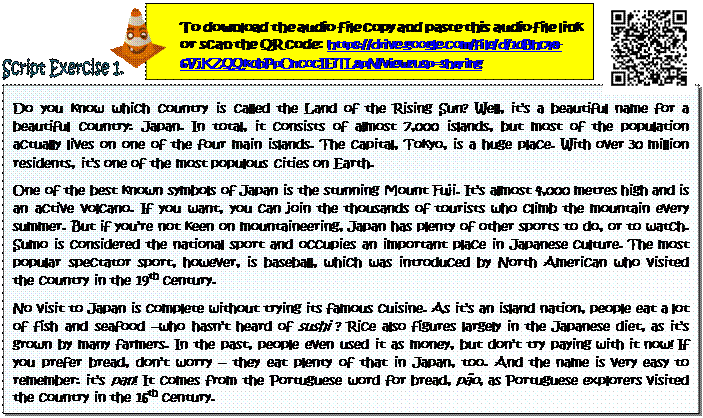
- Автоматизация
- Антропология
- Археология
- Архитектура
- Биология
- Ботаника
- Бухгалтерия
- Военная наука
- Генетика
- География
- Геология
- Демография
- Деревообработка
- Журналистика
- Зоология
- Изобретательство
- Информатика
- Искусство
- История
- Кинематография
- Компьютеризация
- Косметика
- Кулинария
- Культура
- Лексикология
- Лингвистика
- Литература
- Логика
- Маркетинг
- Математика
- Материаловедение
- Медицина
- Менеджмент
- Металлургия
- Метрология
- Механика
- Музыка
- Науковедение
- Образование
- Охрана Труда
- Педагогика
- Полиграфия
- Политология
- Право
- Предпринимательство
- Приборостроение
- Программирование
- Производство
- Промышленность
- Психология
- Радиосвязь
- Религия
- Риторика
- Социология
- Спорт
- Стандартизация
- Статистика
- Строительство
- Технологии
- Торговля
- Транспорт
- Фармакология
- Физика
- Физиология
- Философия
- Финансы
- Химия
- Хозяйство
- Черчение
- Экология
- Экономика
- Электроника
- Электротехника
- Энергетика
c) Mount Fuji
 | |||||||||
 | |||||||||
 | |||||||||
 | |||||||||
 | |||||||||

1. What is a common name for Japan?
a) 
 The Land of the Samurai
The Land of the Samurai
b)  The Land of Rice
The Land of Rice
c) The Land of the Rising Sun
2. Japan is...
a) a series of islands.
b) all on the mainland.
c) partly on the mainland, partly islands.
3. 
 What is the capital of Japan?
What is the capital of Japan?
a) Tokyo b) Beijing c) Taipei
4. What is the population of the capital?
a) 10 million b) 20 million c) 30 million
5. Which of these mountains is in Japan?
a) Mount Kilimanjaro b) Mount Hirohito
c) Mount Fuji
6. 
 What is the most popular spectator sport
What is the most popular spectator sport
in Japan?
a) football b) baseball c) sumo wrestling
7.  What did people use as money in the past?
What did people use as money in the past?
a) rice b) bread c) gold
8. What is the Japanese word for “bread”?
a) bread b) pan c) hatushi
 | ||||
 | ||||
 | ||||

·  marriage in Japan
marriage in Japan
·
|
·  the ethnic mix in North America
the ethnic mix in North America
· Japanese food
· How the Japanese view their customs


1. What is a common name for Japan?
a) 
 The Land of the Samurai
The Land of the Samurai
b) The Land of Rice
c)  The Land of the Rising Sun
The Land of the Rising Sun
2. Japan is...
a) a series of islands.
b) all on the mainland.
c) 
 partly on the mainland, partly islands.
partly on the mainland, partly islands.
3. What is the capital of Japan?
a) Tokyo b) Beijing c) Taipei
4. What is the population of the capital?
a) 10 million b) 20 million c) 30 million
5. Which of these mountains is in Japan?
a) 
 Mount Kilimanjaro b) Mount Hirohito
Mount Kilimanjaro b) Mount Hirohito
c) Mount Fuji
6. What is the most popular spectator sport
in Japan?
a) football b) baseball c) sumo wrestling
 7. What did people use as money in the past?
7. What did people use as money in the past?
a) rice b) bread c) gold
8. What is the Japanese word for “bread”?
a)  bread b) pan c) hatushi
bread b) pan c) hatushi
 | |||
 | |||
 | |||
 | |||
 | |||
 | |||||||
 | |||||||
 | |||||||
 | |||||||

·  marriage in Japan
marriage in Japan
·
|
·  the ethnic mix in North America
the ethnic mix in North America
· Japanese food
· How the Japanese view their customs
 | |||||
 | |||||
 | |||||

PART 1:
| Interviewer: | Malcolm, you’ve been leaving in Japan for a while. What’s it like being a foreigner there? |
| Malcolm: | Hmm, that’s not an easy question to answer. I think it’s probably a good idea if I give some background information about Japan first. It helps to know a bit about the country when talking about a subject like this. |
| Interviewer: | OK, go ahead! |
| Malcolm: | Well, first of all, you need to realise that Japan is a very “pure” country, ethnically speaking. Over 98% of the population is ethnically Japanese. There’s really been very little of mixing of races in Japan’s history –which is pretty strange, when you come to think of it. |
| Interviewer: | Why do you say that? |
| Malcolm: | Well, I suppose I think it’s strange because I’m from the USA and, as you know, we’ve got an amazing mixture of people from all around the world. We are the country of immigration. I mean, I myself am Afro-American. |
| Interviewer: | OK, I see. So you were saying that Japan is not precisely a melting pot of races... |
| Malcolm: | That’s right. And this has a big effect on everything in Japan. First of all, Japanese culture is completely dominant. There’s nothing really multicultural about the country at all. |
| Interviewer: | But aren’t young people very keen on US designer-label brands? |
| Malcolm: | Well yes, they are, but that’s quite superficial. Deep down, there’s a tendency here to think that the Japanese way of doing things is the only way of doing things, or at least the best way. You’ve also got to remember that, precisely because there are so few non-Japanese in Japan; people don’t come into contact with foreigners very often. So it can be a bit of a shock for them when they do see one. |
| Interviewer: | Is that your own experience? |
| Malcolm: | Well, I think my own case is particularly “extreme”, if I can put it that way. I mean, I’m black, so I couldn’t really look much more different! (laughs) Also, I live in a small town in Japan and there are very few foreigners there... of any colour. |
 |


|

PART 2:
| Interviewer: | So, to get back to my original question, what’s it like being a foreigner in Japan? Is it possible to feel really integrated? |
| Malcolm: | Well, I think it’s quite difficult. It’s not that the Japanese don’t like foreigners, or are especially prejudiced. It’s just that we seem really weird to them... a bit like aliens. |
| Interviewer: | Really? Aren’t you exaggerating a bit? |
| Malcolm: | I don’t think so. For example, people here stare at me a lot. But they don’t stare at me because they are being rude. It’s just that I look very, very strange to them. |
| Interviewer: | That’s amazing! What differences have you noticed between Japan and the US? |
| Malcolm: | Oh, lots! To start with, the Japanese are very formal and polite, and have a great deal of respect for authority figures and older people. In the West we tend to be much more laid-back and informal. And, we don’t always show a lot of consideration to elderly people. I personally think that we could learn a lot from the Japanese as far as that’s concerned. |
| Interviewer: | Do you change the way you behave when you’re with Japanese people? |
| Malcolm: | Well, I don’t become a different person, if that’s what you mean! But I certainly do try to act politely and not offend anyone. For example, when I speak to Japanese people, I’m very formal and I bow a lot. |
| Interviewer: | Doesn’t it feel strange to act so formally? |
| Malcolm: | Well, it did at the beginning, but not any more. Anyway, it doesn’t really matter if it feels strange. The thing is, you need to respect the customs and the culture of the country you live in. It’s as simple as that. |
| Interviewer: | Japanese people also have a reputation for being very shy. Do you think that’s true? |
| Malcolm: | Well. They’re certainly reserved, and behaving in the correct way is very important to them. Let me give you a real example which might surprise you. Sometimes, when I ask people in the street for help –asking for directions, that kind of thing – they literally run away! Now, they’re not being rude or racist. It’s just that they’ve never met a foreigner before. So they’re probably thinking: “I don’t know any English. What do I do? What do I do? ” |
| Interviewer: | Well, Malcolm, that was really interesting. Thanks very much! |
|
|
|
© helpiks.su При использовании или копировании материалов прямая ссылка на сайт обязательна.
|